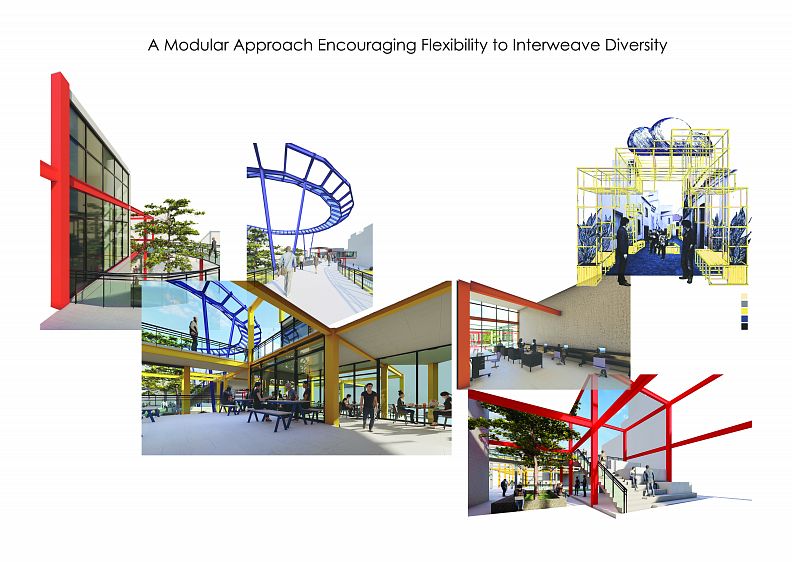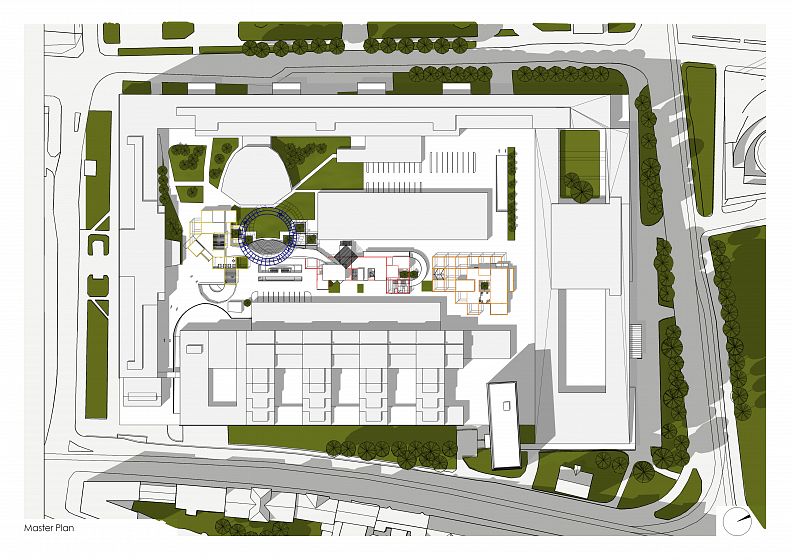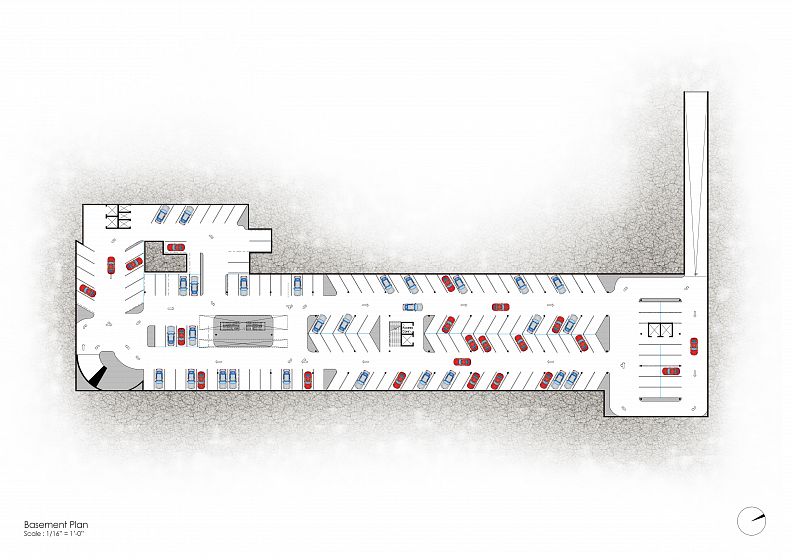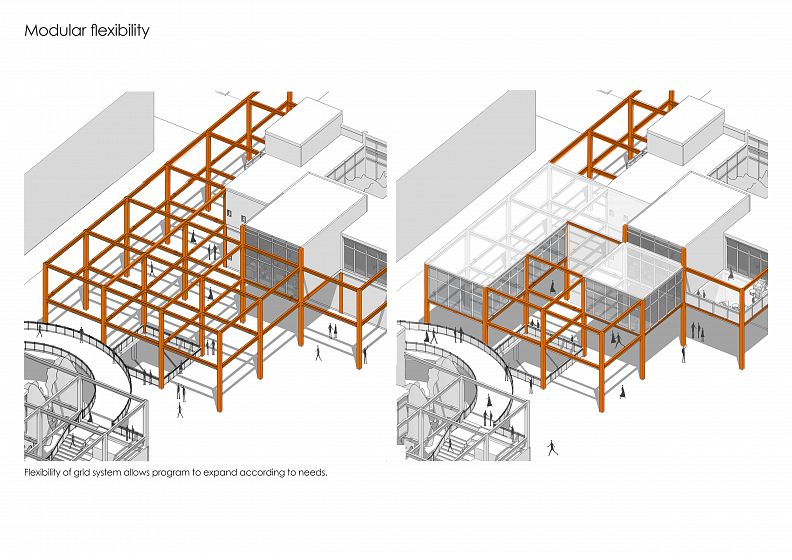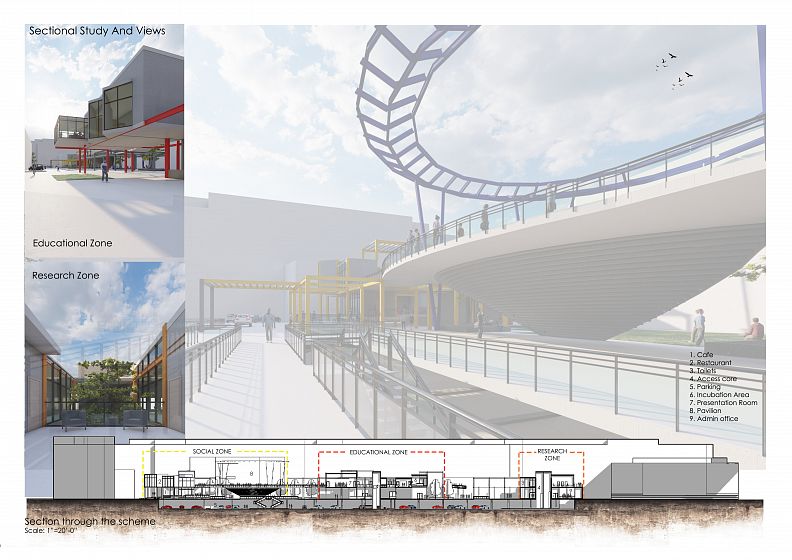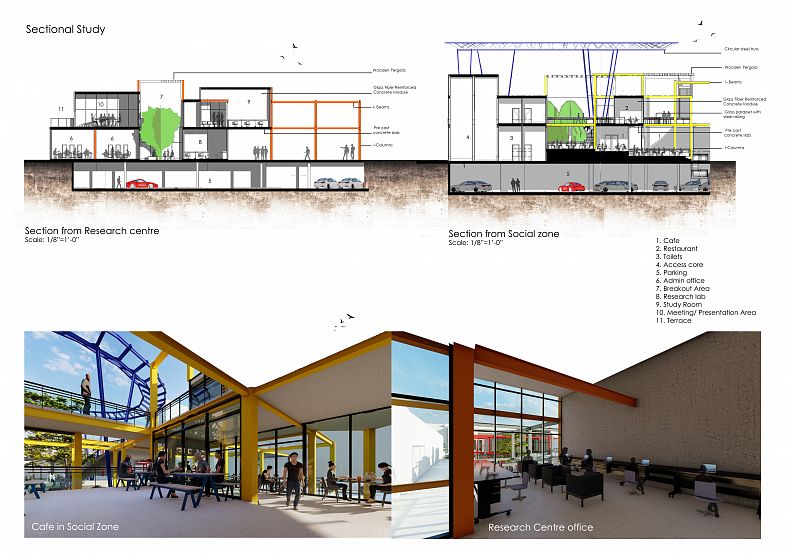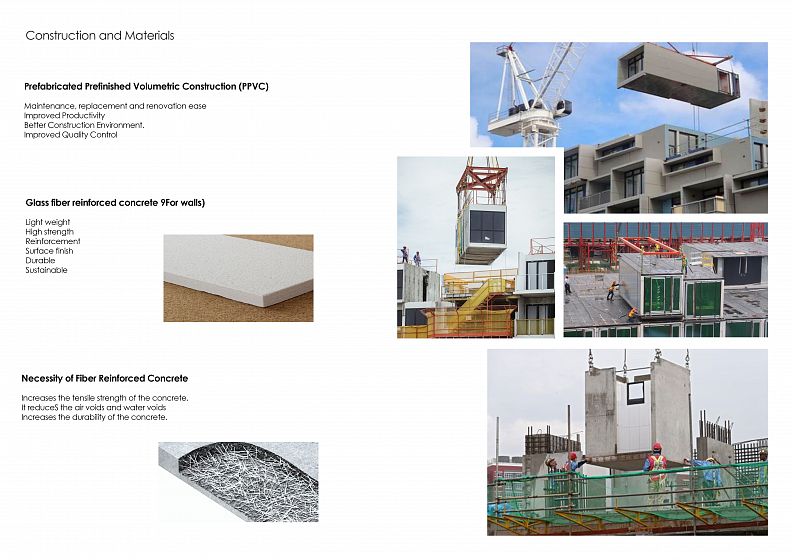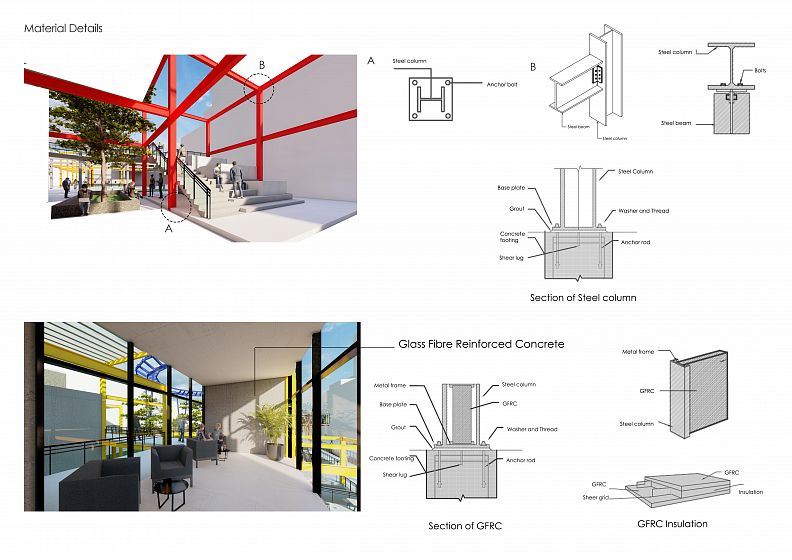A Modular Approach Encouraging Flexibility to Interweave Diversity

Project idea
The courtyard of STU, Bratislava is surrounded by the departments of Mechanical Engineering, Food and chemicals and Civil Engineering, on all the four sides of the open to sky courtyard. Keeping in mind that central courtyard is the only open space in the campus, the design of the additional structure is based upon the concept of flexibility and permeability which is achieved through modular structures.
In order to incorporate diverse programs in the STU Campus, the idea of modularity encourages flexible programming for existing and future interventions and modification. The scheme comprises of 3 zones i.e., Social, Educational and Research zone which are connected in a way that creates an experiential journey. These zones are placed in relation to the existing programs and in consideration with the public private access points. The open courtyard is perceived to have an experiential journey through the zones for the daily users as well as for general public. The design encourages movement for users through the campus providing an easy route to access other parts of the neighborhood.
Project description
The representative center of STU is designed in a way that it sustains the openness of the courtyard. The design achieves the goal of integrating diverse programmatic needs in a modular set-up while preserving and enhancing natural landscape. The concept of modularity is attained through a grid framework that interlaces the existing programs with the opportunity of future extensions at multiple levels. The grid sprawls through the courtyard comprising of generous open-to-sky social pockets and required enclosed programs such as research center, exhibition and workshops. Extension of modules is executed by following auxiliary grids surrounding the programs. Modules are lightweight to keep the expansion easy and possible in minimum time. Each zone is highlighted by a bold color that speaks itself about its function and use.
Existing buildings around the courtyard appear as a solid mass. Therefore, openness of the new structure in courtyard promotes public private interaction, healthy engagement among students, faculty and staff members working in different programs.
In a nutshell, the grid system encourages the modularity of diverse programs of representative center by providing transformable spaces. The courtyard which was used as a recreational open area can now be used as a functional space while preserving the essence of breathable spaces that offer ownership to the users to modify the space according to the needs of time.
Technical information
The grid framework is the main structure that comprise mainly of I-Sections used as columns and beams. It acts as a skeleton that offers flexibility in holding modules in place and provides required support in order to expand the build-up structure.
The modules are made of Prefabricated Prefinished Volumetric Construction where it is prepared with finishes and fixtures on an off-site facility which is transported to the site. Material used for the construction of modules is Glass Fiber Reinforced Concrete (GFRC). It is described as a composite material consisting of mixtures of cement, mortar or concrete and discontinuous, discrete, uniformly dispersed suitable fibers. GFRC is considerably lighter than the traditional concrete which makes it suitable for the construction of flexible, prefabricated modules.
